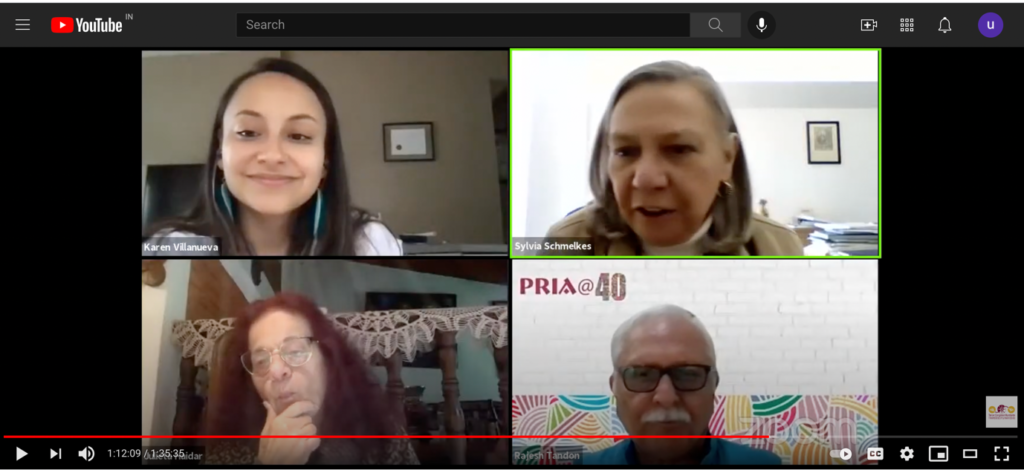Date/Time
Date(s) - 10/09/2021
8:30 pm
Categories No Categories

About the Congress
The organizers of the III World Congress of Virtual Transdisciplinarity, the Center International de Recherches et Études Transdisciplinaires (CIRET-FRANCE), the National School of Anthropology and History (ENAH / INAH-MÉXICO), the UNESCO Transdisciplinary Chair Human Development and Culture of Peace of Florence University (CTU-ITALY), the Center for Educa CaO Transdisciplinar (CETRANS-BRASIL) have made this global event of great importance for us all. This Congress is part of the III World Congress of Face-to-face Transdisciplinarity that will be held in Mexico City, from October 31 to November 8, 2022.
Theme for Day 2: Decolonization And The Knowledge For Change Consortium: Challenges And Hopes
Speakers
Dr. Rajesh Tandon, Founder-President, Participatory Research in Asia and Co-Chair of the UNESCO Chair in Community-Based Research and Social Responsibility in Higher Education
Dr. Sylvia Schmelkes, Vice-Chancellor, Iberoamericana University, Mexico
Ms. Karen Villanueva, Supervisor of Programming at the Toronto Centre for Learning & Development
Dr. Julieta Haidar, president of the III World Transdisciplinarity Congress and professor-researcher at the National School of Anthropology and History (ENAH)
Summary
Dr. Rajesh Tandon set the stage for the Congress by stating that Covid- 19 and the climate crisis have exacerbated inequalities around the world, and decolonization of knowledge is important now more than ever. Socially responsible higher education is important to make knowledge systems open. The Knowledge for Change Global Consortium (K4C) supports contextual knowledge solutions for societal problems in the context of SDGs and Covid-19 to prepare the next generation of Community Based Participatory Researchers.
Dr. Schmelkes provided a nuanced perspective to the role of higher education in decolonizing knowledge. She stated that the way we are approaching societal problems isn’t working. Covid-19 increased discrimination, racism and inequalities, and higher education needs to be responsive to these challenges by engaging a wide variety of stakeholders. She also spoke of the three streams of pedagogy, research and outreach and how they can promote transdisciplinarity and interculturality. Karen Villanueva provided insights into her field study as part of the K4C Global Consortium through CBPR methodology.
Watch Day 2 of the Congress here:
Find Dr. Tandon’s Powerpoint presentation here.
Congress website:
http://www.tercercongresomundialtransdisciplinariedad.mx/
Congress YouTube channel:




